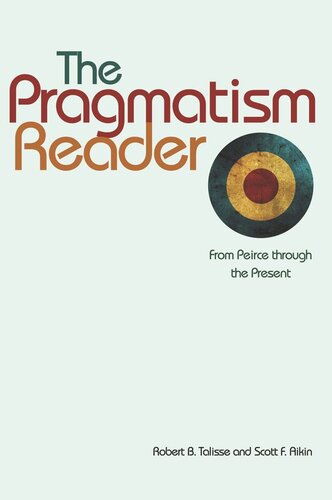

Most ebook files are in PDF format, so you can easily read them using various software such as Foxit Reader or directly on the Google Chrome browser.
Some ebook files are released by publishers in other formats such as .awz, .mobi, .epub, .fb2, etc. You may need to install specific software to read these formats on mobile/PC, such as Calibre.
Please read the tutorial at this link: https://ebookbell.com/faq
We offer FREE conversion to the popular formats you request; however, this may take some time. Therefore, right after payment, please email us, and we will try to provide the service as quickly as possible.
For some exceptional file formats or broken links (if any), please refrain from opening any disputes. Instead, email us first, and we will try to assist within a maximum of 6 hours.
EbookBell Team

4.0
76 reviewsThe Pragmatism Reader is the essential anthology of this important philosophical movement. Each selection featured here is a key writing by a leading pragmatist thinker, and represents a distinctively pragmatist approach to a core philosophical problem. The collection includes work by pragmatism's founders, Charles Peirce, William James, and John Dewey, as well as seminal writings by mid-twentieth-century pragmatists such as Sidney Hook, C. I. Lewis, Nelson Goodman, Rudolf Carnap, Wilfrid Sellars, and W.V.O. Quine. This reader also includes the most important work in contemporary pragmatism by philosophers like Susan Haack, Cornel West, Hilary Putnam, Richard Rorty, Cheryl Misak, and Robert Brandom. Each selection is a stand-alone piece--not an excerpt or book chapter--and each is presented fully unabridged.
The Pragmatism Reader challenges the notion that pragmatism fell into a midcentury decline and was dormant until the advent of "neopragmatism" in the 1980s. This comprehensive anthology reveals a rich and highly influential tradition running unbroken through twentieth-century philosophy and continuing today. It shows how American pragmatist philosophers have contributed to leading philosophical debates about truth, meaning, knowledge, experience, belief, existence, justification, and freedom.